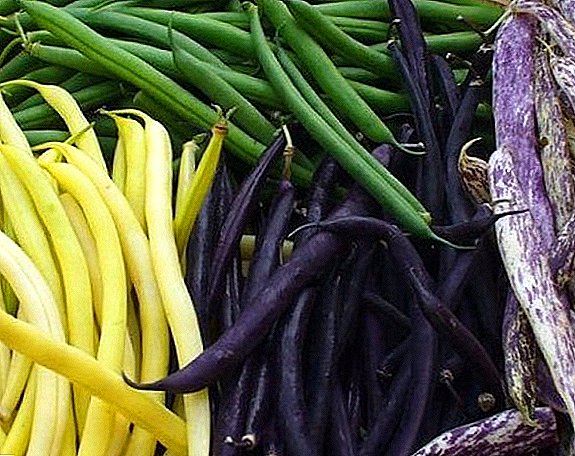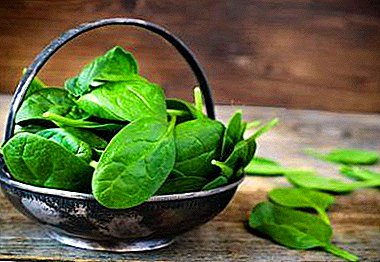
Every gardener who loves his work wants to reap tasty and healthy fruits. That is why you should pay great attention to the choice of seeds. Each variety has its own peculiarity and grows under certain conditions.
Red cabbage is a northern culture that loves the cold. It keeps a lot of useful properties: improves skin elasticity, cleanses the body of toxins, strengthens the nervous system and immunity.
Not every gardener can boast of growing this vegetable in his garden. Although for the successful cultivation of red cabbage it is enough just to decide on the variety. And this will help you our article.
How to choose correctly?
Red cabbage, regardless of the variety, needs fertile, loose and light soil with low acidity. Illuminated ridge will be a good place for a plant., which last year grew cucumbers, tomatoes or potatoes.
Culture takes root better in greenhouses (this prevents jumps in temperature, humidity and lighting), but for such varieties as Mikhnevskaya, Lyudmila, Garanci and Stone Head, it is quite suitable to grow under the open sky.
As mentioned above, red cabbage is cold resistant. Seeds germinate at + 2-3 °. A comfortable temperature for growing is considered + 15-20 °.
Important! At + 25-30 ° heads of cabbages begin to crack and cease to tie. But do not get upset - the hybrids of red cabbage Varna and Mikhnevskaya perfectly tolerate the heat. They will not only surprise you with rich red-violet color, but also will delight you with bright taste properties.
If you live in a cold region (-8-10 °), then Stone Head, Primero, Kalibos and Gako is exactly what you need. These varieties are distinguished by extraordinary tenderness, juicy leaves and lack of bitterness. Well transported and do not crack (with the exception of the Stone Head).
For mass cultivation, and then further sale, choose hybrids Garanci, Varna, Primero and Langeaker late. Heads have good keeping quality, resistance to major diseases. Due to their presentable appearance, long storage and yield, they enjoy great success and are a "hit" with domestic gardeners.
For their own small garden suitable varieties with short-term storage. These include:
- Red Jewel.
- Nurima.
- Kyoto.
- Romanov.
Deep red and bright purple colors will decorate your beds, giving them a variety and colorful. Such smooth, spherical heads can boast to the guests. Cabbage has a crisp and slightly poppy taste, which will give a highlight to any cooked salad.
- stewed in Czech;
- in Korean;
- to pickle.
A photo
You will see a photo of varieties of red cabbage:





The best varieties of ripeness with the names
By maturity, red cabbage is subdivided into early (Red Jewel, Kyoto, Primero, Nurima, Romanov), medium (Mars, Mikhnevskaya, Varna, Lyudmila, Stone head) and late (Rodima, Garansi, Pallet, Landeydeker late, Juno). Early cabbage varieties must be present in every garden. The head reaches not such large sizes, as, for example, late-ripening cabbage. However, it pays off with the rapid growth and tenderness of the leaves. Early cabbage is perfect for fresh consumption and cooking.
Below is a comparative table of red cabbage varieties:
| Names of varieties: | Vegetation: | Weight: | The form: | Color on the cut: | Consumption: | Disease resistance: | Productivity: |
| Red Jewel (ran.) | 70-75 days | up to 2 kg. | rounded | dark violet | fresh, cooking (short storage) | high | 4.6 kg / m2 |
| Kyoto (ran.) | 70-75 days | 1.5-2.5 kg. | spherical | bright purple | fresh (short-term storage; about 4 months) | average | 5.2 kg / m2 |
| About (ran.) | 78 days | 1-2 kg. | spherical | Violet | fresh look and processing | average | 8.0-10 kg / m2 |
| Nurima (wounds) | 70-80 days | up to 2 kg. | round | Violet | fresh look (short term storage) | low | 6.2 kg / m2 |
| Romanov (ran.) | 90 days | 1.5-2 kg. | rounded | rich red | fresh, cooking (short storage; 1-2 months.) | high | up to 6 kg / m2 |
| Mars (avg.) | 105-110 days | 1.3-2 kg. | rounded flat | dark violet | fresh | high | 6.0-8.0 kg / m2 |
| Mikhnevskaya (noun) | 98-130 days | 1.5-3 kg. | oval | red-purple | fresh | average | 6.0-8.0 kg / m2 |
| Varna (n) | 120-130 days | 1.5-3 kg. | round oval | red-purple | fresh look and processing | high | 8-10.2 kg / m2 |
| Lyudmila (noun) | 125-130 days | up to 2 kg. | perfectly round | Violet | fresh look and processing | high | 5.1 kg / m2 |
| Stone Head (n) | 125-130 days | up to 4 kg. | round | Violet | fresh, cooking | average | 2.3-6.6 kg / m2 |
| Kalibos (noun) | 140-150 days | 1.5-2 kg. | cone-shaped | red-purple | fresh | high | 580-640 c / ha |
| Rodima (late) | 140 days | up to 4 kg. | oval | dark cherry | fresh | average | 8.8 kg / m2 |
| Garanci (late) | 140 days | up to 3 kg. | round oval | rich red | fresh, processing | low | 80-90 t / ha |
| Pallet (late) | 155 days | 1.8-2.3 kg. | round | Violet | fresh, cooking | average | 1.8-3.5 kg / m2 |
| Langedaker late (late) | 145-160 days | up to 4 kg. | oval | red-purple | fresh processing | high | 8.0-10 kg / m2 |
| Juno (late) | 160 days | 1.2 kg. | perfectly round | dark violet | fresh | low | 3.9 kg / m2 |
 So what kind of cabbage is truly the best? Of all the variety of hybrids, culture called Primero is in great demand. A sufficiently short ripening period, high yields (despite the insufficiently large sizes), keeping quality and transportability bring this type of cabbage to frequent market demand.
So what kind of cabbage is truly the best? Of all the variety of hybrids, culture called Primero is in great demand. A sufficiently short ripening period, high yields (despite the insufficiently large sizes), keeping quality and transportability bring this type of cabbage to frequent market demand.
The hybrid has an attractive appearance (resilient, dense, rounded) and excellent taste (there is no feeling of bitterness). Approximately not susceptible to fusarium, used for both early and late disembarkation. When dense planting is characterized by excellent behavior and does not lose its presentation.
But do not think that all other varieties of cabbage worse. Each hybrid has its own personality and peculiarity: some are good at cooking, others delight the eye with their beauty, others are resistant to diseases and unpretentious. It all depends on your preferences and desires. If you love plants and with trepidation, treat them to grow, then absolutely any cabbage will delight you and your loved ones.












